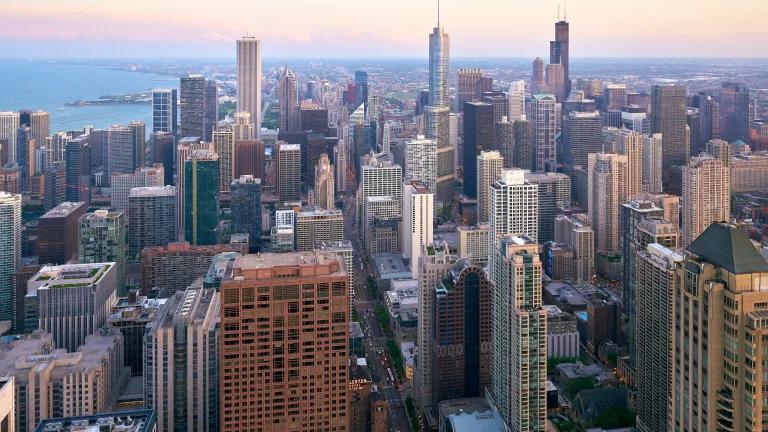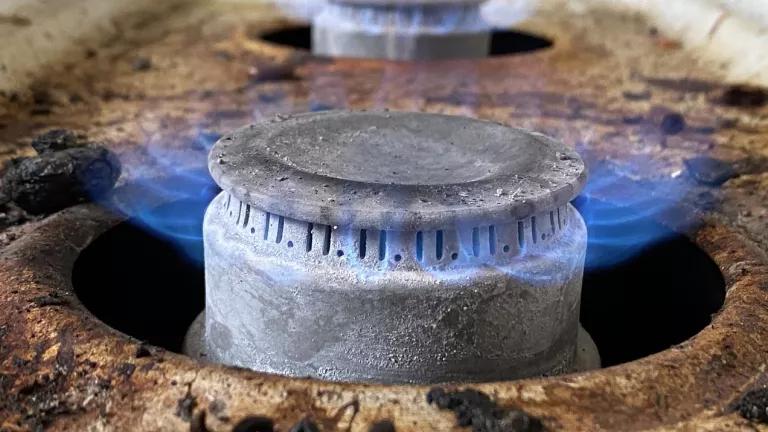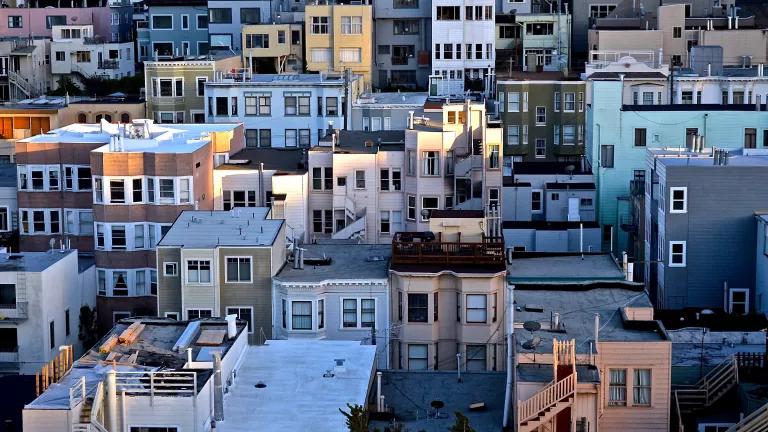Illinois Gas Rate Cases Victory for Illinois Consumers and Communities
ICC initiates a forward-thinking "Future of Gas" proceeding and a robust low-income discount rate.

The Illinois Commerce Commission (ICC), the agency that regulates investor owned utilities in Illinois, has recently delivered three groundbreaking decisions in gas rate cases, keeping Illinois on track as a climate leader in the Midwest. At the beginning of the year, all three major gas utilities had proposed an unprecedented rate hike totaling almost $900 million. This proposal came at a time when many Illinoisans were already grappling with the challenge of paying their gas bills. Moreover, it occurred during a critical juncture in time, where the state is compelled to reevaluate its current gas system to align with its climate goals. These historic rulings answered this call by initiating a “Future of Gas” proceeding and implementing a robust low-income discount rate.
ICC requires plan to equitably transition away from the gas system.
Across all three rulings, the ICC ruled that all three gas utilities must participate in a “Future of Gas” proceeding. The Future of Gas proceeding is a significant development because it represents a formal exploration and consideration of the role of gas in the future, particularly in the context of the state’s broader environmental and energy policy goals. The ICC states “If the decarbonization goals of CEJA [Climate and Equitable Jobs Act] are to be met, the gas distribution system as currently operated will need to change.” This transition is critical to ensure both clean and affordable energy in the future. Not only is gas a dirty energy source that has impacts on our health and climate, it is also very expensive. This process will force gas utilities to plan for a different gas spending landscape in light of the changing energy and affordability landscape. For example, the gas utilities will no longer be able to ignore the impacts that electrification has on the gas system.
NRDC, along with a group of advocacy organizations, played a crucial role in presenting compelling testimony on the benefits of electrifying buildings, arguing that gas utilities must incorporate these findings into their planning. The ICC echoed these concerns, expressing worry that current efforts “are not currently working towards the electrification goals of the State.” The Future of Gas proceeding now provides a platform for a diverse variety of groups and entities to engage in a planning process that integrates various scenarios, including electrification, to ensure that gas utilities are responsibly spending customer dollars on projects aligned with the state’s climate and energy policy goals. Not only does this process start the planning of rethinking the current gas system, but it is also a venue for groups to ensure this process is done equitably.
Equity considerations must be at the forefront of reshaping the gas system, acknowledging the disproportionate impact on black and brown communities. These communities are already disproportionately exposed to higher levels of indoor air pollution and energy bills. In addition, if the gas transition does not incorporate equity, the folks who remain on the gas system the longest will be at a huge financial disadvantage. The ICC emphasized the need for entities to discuss and recommend cost considerations, protecting those remaining on an outdated, dirty system bearing a disproportionate share of the remaining gas system's cost.
The Future of Gas proceeding, which is expected to start in 2024, provides a planning process for the reshaping of the gas system. It is of the upmost importance that groups from diverse backgrounds play a role in reshaping a cleaner and more affordable energy system to heat our communities. This will ensure that we are equitably charting a course to meet our state climate goals. While this process is underway, the ICC also mandated more near-term solutions.

ICC greenlights advocates’ recommendation of a low-income discount rate.
The ICC's decisions will have an impact on customer bills, despite significant cuts in the proposed rate increase. At a time when Illinoisans are already struggling to pay their gas bills, any ruling short of a complete rejection of the sought-after rate increase will have a negative impact on the customers and communities. However, the ICC did institute the advocates’ recommendation of a low-income discount rate. This discount will provide some relief to folks already experiencing high energy burdens.
Through extensive testimony, advocates made it clear that there is an energy affordability crisis. For example, Peoples Gas residential customers who are past due on their bills owe on average $792 each. This means for a family of three at the federal poverty line, this past due balance would make up almost 40% of their monthly income. Further, disconnection notices are higher in predominantly minority zip codes. This and other alarming statistics exemplify the need for a low-income discount rate. The rate put in place is a five-tiered income level approach with the biggest discount going to folks between 0% to 50% of the federal poverty line. This much needed relief is welcomed, while organizations and other entities can recommend more affordability proposals in the Future of Gas process.
Next year advocates and interested parties will start to shape the future of the energy landscape.
As this year-long process concludes, it is important to highlight the diverse combination of advocacy organizations and other entities that presented crucial testimony to shape the ICC’s historic decision. Environmental organizations, consumer protection groups, environmental justice champions, and folks with lived experience aligned with a collective vision of fostering a just, safe, affordable, and healthy future for every resident of Illinois. The collaborative efforts and testimonies from these diverse entities underscored the shared commitment to reshaping the trajectory of the gas system. Advocates and individuals with lived experiences testified in front of regulators, organized rallies, and expressed their concerns at public hearings. These tactics and direct testimony to the ICC delivered this collective win for Illinois. As we start the Future of Gas process in 2024, we must incorporate an even broader spectrum of voices and tactics. Through this inclusive effort, we can forge an equitable transition away from the gas system.



